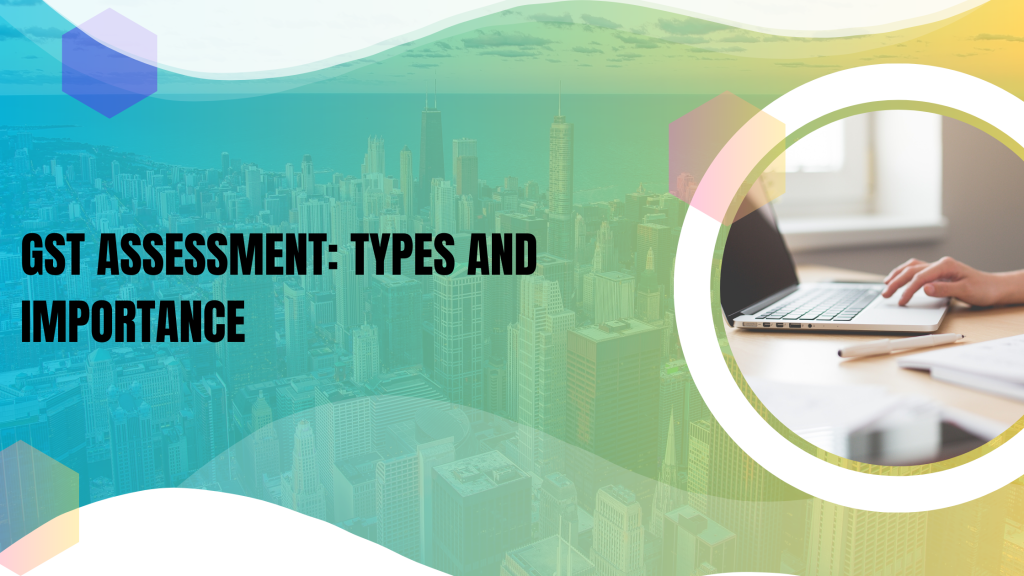There has been insufficient attention to the complexities of GST procedures, including GST Audit and Assessment. These procedures are essential in resolving discrepancies between a taxpayer’s liabilities and the amounts paid. In this article, we focus on the GST Assessment process to help taxpayers better understand and comply with GST regulations.
Understanding GST Assessment
GST assessment is the process of evaluating a taxpayer’s tax liability using the information from their returns and other pertinent documents. This assessment is crucial for ensuring adherence to GST laws and regulations, thereby upholding the integrity of the tax system.
GST Assessment Procedure
The GST assessment procedure is a structured process designed to verify the accuracy and compliance of tax returns submitted by taxpayers. Below is a detailed explanation of the steps involved:
- Filing of Tax Returns: The process starts with taxpayers submitting their tax returns, which detail their income, expenses, and tax liability. It is the taxpayer’s responsibility to ensure the accuracy of this information.
- Review of Returns: After the tax returns are filed, tax authorities review them to check for any discrepancies or inaccuracies. This involves verifying the taxpayer’s reported income, expenses, and tax liability.
- Identification of Discrepancies: If the review process uncovers discrepancies, such as errors in tax calculations or incorrect information, these issues are flagged by the tax authorities. Discrepancies may arise from calculation errors, incorrect income or expense reporting, or non-compliance with GST laws.
- Initiation of Investigation or Audit: When discrepancies are identified, tax authorities may initiate a more thorough investigation or audit. This involves a detailed examination of the taxpayer’s records and transactions to verify the accuracy of the returns and determine the correct tax liability.
- Outcome of Investigation or Audit: The result of the investigation or audit can vary. If the returns are accurate, no further action is required. However, if discrepancies are confirmed, the taxpayer may have to pay additional taxes, penalties, or fines. In severe cases of non-compliance, legal action may be taken.
- Rectification and Compliance: Post-investigation or audit, the taxpayer must address the discrepancies and ensure compliance with GST laws. This may involve paying additional taxes, correcting errors in future returns, or adopting measures to comply with GST regulations.
By understanding and adhering to the GST assessment procedure, taxpayers can ensure compliance with GST laws and regulations, avoid penalties, and contribute to the integrity of the tax system. It is always advisable to consult with a tax professional or advisor to ensure accurate and compliant tax returns.
Different Forms of GST Assessment
- Self-Assessment:
Self-assessment is the foundation of the GST system, where taxpayers are responsible for accurately determining their tax liabilities. Under this method, taxpayers calculate and pay their taxes based on the information provided in their GST return filings. This approach emphasizes voluntary compliance and transparency in tax reporting, allowing taxpayers to identify any issues in their GST returns.
- Summary Assessment:
Summary assessment is conducted by GST officials to verify the accuracy of the taxpayer’s self-assessment. It involves an initial review of the taxpayer’s GST return filings and supporting documents to identify any discrepancies or errors. This type of assessment helps detect potential tax evasion and ensures the correctness of tax filings.
- Scrutiny Assessment:
Scrutiny assessment involves a thorough examination of the taxpayer’s records and documents by GST authorities to confirm the accuracy and completeness of the GST return filings. This assessment may be initiated based on specific risk factors or discrepancies found during the summary assessment. The goal of scrutiny assessment is to uncover any non-compliance with GST laws and regulations and to implement corrective actions as needed.
- Best Judgment Assessment:
Best judgment assessment is used by GST authorities when a taxpayer fails to provide the necessary documents or information for assessment. In these cases, the assessing officer determines the taxpayer’s tax liability based on available information and relevant factors, using their best judgment. This type of assessment acts as a final measure to ensure tax compliance in instances of non-cooperation or non-compliance by taxpayers.
Importance of GST Assessment
Assessment under GST is crucial for small and medium-sized businesses in India due to the following reasons:
- Ensuring Compliance and Transparency:
Proper assessment ensures adherence to GST laws and regulations, promoting transparency and accountability in tax reporting. This helps taxpayers fulfill their tax obligations accurately and punctually, thereby bolstering trust in the GST system.
- Combatting Tax Evasion:
Through methods like summary and scrutiny assessments, tax authorities can identify instances of tax evasion or underreporting of income. This proactive approach helps in curbing revenue leakage and maintaining the revenue neutrality of the GST regime.
- Promoting Fair Taxation:
Assessment procedures ensure that taxes are levied fairly based on actual turnover and transactions. This prevents undue advantages for certain taxpayers and supports equitable taxation across various sectors and businesses.
- Legal Compliance and Risk Mitigation:
Adherence to assessment procedures is essential to avoid penalties, fines, or legal actions by tax authorities. By following GST assessment guidelines, taxpayers can mitigate compliance risks and safeguard their business interests effectively.
- Enhancing Business Confidence:
Reliable assessment processes contribute to a stable business environment by providing clarity and predictability in tax obligations. This fosters confidence among taxpayers and encourages investment and growth in the economy.
- Supporting Government Revenue:
Effective assessment helps in accurate collection of taxes, thereby supporting government initiatives and public welfare programs funded through GST revenues. This ensures sustainable fiscal policies and economic development.
Conclusion:
Understanding the assessment is vital for businesses, particularly those involved in exempt goods or services or registered under the composition scheme. It ensures adherence to GST laws, preventing penalties. Proper assessment allows businesses to maintain precise transaction records, crucial for filing GST returns.
Stay tuned to us for further updates.


